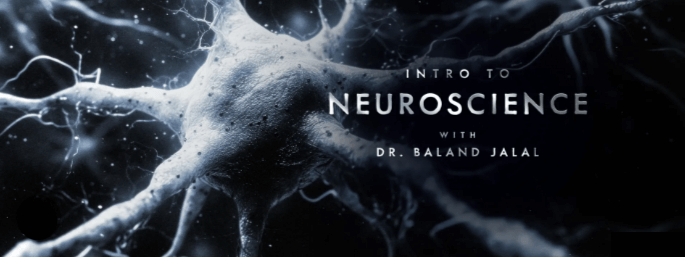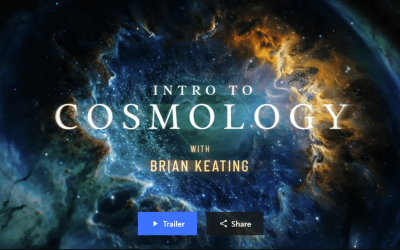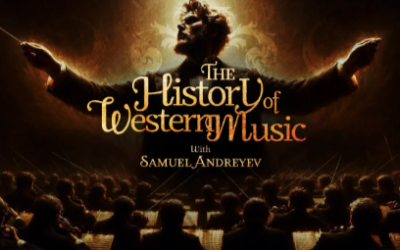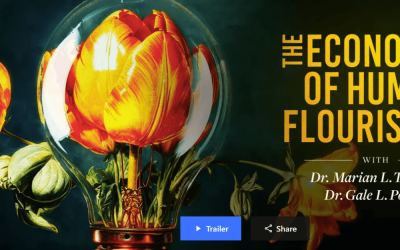In Intro to Neuroscience, an eight-hour course, Dr. Jalal embarks on a captivating journey through the intricacies of the human brain, exploring its structure, function, and the fascinating phenomena it produces.
File Size: 7.256 GB.
Format File: 8 MP4, 8 SRT, 9 TXT.
Peterson Academy – Baland Jalal – Intro to Neuroscience

In Intro to Neuroscience, an eight-hour course, Dr. Jalal embarks on a captivating journey through the intricacies of the human brain, exploring its structure, function, and the fascinating phenomena it produces. We delve into topics such as the neuroscience of body image, neuroplasticity, memory, sleep, and the fascinating realm of dreams. Throughout the course, we highlight the complex interplay between the mind, brain, and body. This exploration also covers the potential clinical applications of neuroscience findings, culminating in empowering insights on how to lead a fulfilling and purposeful life.
Lectures
1. The Brain
In our first lecture, we’re introduced to the fascinating world of the human brain, embarking on an exploration of its intricate structure and function. Dr. Jalal begins with a personal anecdote about a sleep paralysis experience, then guides us through the brain’s anatomy, from the microscopic level of neurons and synapses to the larger lobes and regions that govern our sensory experiences, emotions, and higher-order thinking. The lecture underscores the brain’s modular design while highlighting the dynamic interplay between different areas, vividly illustrated by the intriguing rubber hand illusion and its potential clinical applications for treating obsessive-compulsive disorder.
2. Brain and Self
In lecture two, we explore the neuroscience of body image, sense of self, and out-of-body experiences, delving into the roles of various brain regions such as the superior parietal lobe, insula, and vestibular system. Dr. Jalal discusses how the brain constructs our sense of self and how disruptions in these processes can lead to unusual phenomena like sleep paralysis and the perception of ghosts. The lecture also touches on the hierarchical nature of visual processing and the importance of attention in survival and everyday life.
3. Principles of Neuroplasticity
In lecture three, we investigate the principles of neuroplasticity, exploring how the brain’s structure and function can change in response to experience, attention, and novelty. We examine the critical periods for language acquisition and the role of neurotransmitters like acetylcholine and dopamine in facilitating neural rewiring, emphasizing the importance of focused attention and exposure to new stimuli for promoting brain plasticity throughout life.
4. Neuroplasticity and Therapy
In lecture four, Dr. Jalal continues his discussion on brain plasticity in adults, focusing on phantom limb pain and its treatment using mirror therapy. He also explores the role of massed practice in neuroplasticity and the function of mirror neurons in empathy and social disgust, concluding with a study on using video exposure therapy to treat OCD symptoms.
5. Memory and Genius
In lecture five, we venture into the functional complexities of the human brain, exploring topics such as memory, genius, and neuroplasticity. We examine the different types of memory, including procedural, declarative, episodic, and semantic, and discuss the crucial role of the hippocampus in memory formation. We also explore the concept of genius, drawing on examples like the mathematician Ramanujan and the artist Nadia, and consider how brain damage or imbalance might influence exceptional abilities.

6. Brain, Body, and Belief
In lecture six, we investigate the complex interactions between the mind, brain, and body, delving into topics such as the placebo and nocebo effects, the role of the prefrontal cortex in regulating emotions, and the impact of meditation on brain activity. The discussion also touches on personal experiences and the influence of epigenetics on mental health. It then concludes with an examination of the Capgras and Fregoli delusions, highlighting the intricate relationship between sensory input and emotional processing in the brain.
7. Sleep and Reality
In lecture seven, we review key concepts in neuroscience, including brain structures, neurotransmitters, and neural circuits. We then dive into the fascinating topic of sleep and dreams, exploring the different stages of sleep, the paradoxical nature of REM sleep, and the profound impact dreams can have on our conscious experience. The lecture concludes by discussing disorders that blur the line between dreams and reality, highlighting the complex interplay between sleep, dreams, and waking life.
8. Dreams and Beyond
In our eighth and final lecture, Dr. Jalal deepens our exploration of the fascinating world of dreams, examining their bizarre and illogical nature, the neuroscience underlying these phenomena, the role of REM sleep, and the potential purposes of dreaming. He also delves into lucid dreaming and discusses how dreams allow us to engage in emotional interactions, solve problems, and update our sense of self. The course concludes with Dr. Jalal’s guidelines for a fulfilling life, emphasizing the importance of changing one’s environment, fostering social bonds, engaging in intellectual collaboration, and maintaining an open and appreciative mindset.
Course Features
- Lectures 0
- Quizzes 0
- Duration 10 weeks
- Skill level All levels
- Language English
- Students 93
- Assessments Yes












